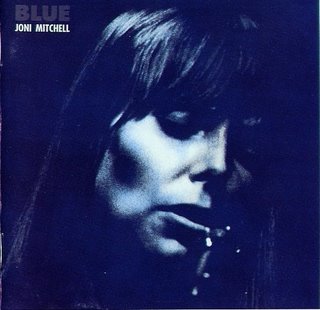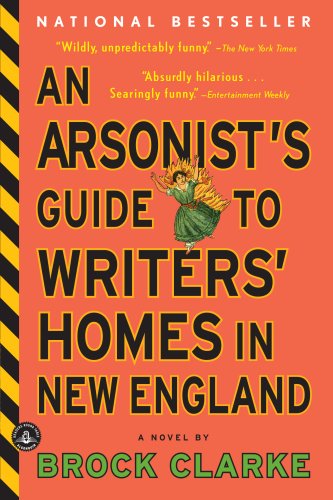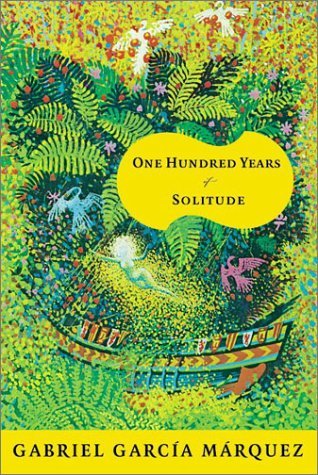
Oh, yes, my children. It's come to this. The List. My admittedly haphazard collection of albums which best suited my tastes. These are the albums I will be listening to in one, five, and even ten years. These are not in an exact order, though I have arranged them so the general gradient is one of ever-increasing quality.
And it's important to remember that these are not necessarily the albums I would refer to as "The best" of the year; these are my favourites. Most of them happen to be the best, is the thing.
The List
 (500) Days of Summer
(500) Days of SummerVarious Artists
This is hear because Dena insisted the list have fifteen entries; don't get me wrong, I would have included it at the outset, but for the fact that I don't include live albums, nor do I include soundtracks. And, yes, it's a bit twee, this ramshackle collection of stellar indie tracks, but it suits the movie so perfectly, and the songs work together so well, that you'd be willing to believe they were meant to be as they are here. Great, great movie, too.
 The Fall
The FallNorah Jones
I appreciate an artist who is willing to change their sound after as much success as Miss Jones has experienced. On The Fall, she ditches the piano that served her so well on her previous two efforts, and picks up the guitar. She's still mellow; this isn't an abrupt about-face. But it's enough of a change that it represents a serious risk. And it's all the better for it. Myself, I'm partial to the closer, "Man of the Hour," which simulates "Makin' Whoopee" for the modern era. Oh, and she's still got that voice.
 Atlantic Ocean
Atlantic OceanRichard Swift
For starters, literally, this album opens with the perfect sound. The timbre of the noise in the first seconds of the title track is such that you can feel it going through you. You don't hear it, you experience it. The rest of the album is wonderful; on Dressed Up for the Letdown, Swift's previous album, he practiced Tin Pan Alley song-craft. Here, he's following in the hyper-melodic footsteps of Macca and Nilsson, and nothing bad can come from that when you've a talent as intriguing as Swift. He'll never be the brightest star of his generation, but I'll bet you money that, in ten years, he'll have a better discography than just about anyone still in the game. Certainly one of the most individual. And, no, this isn't one of the best albums of the year in the strict sense of the word, but I'll also bet I'll have forgotten about half the albums here before I forget this one.
 Tarot Sport
Tarot SportFuck Buttons
Yes, this was in my last post as something I need more time with, but I've spent time with it. And I can only imagine this album will continue to rise up the incline. It's proper place could quite possibly be down there with the top three or four. But, for now, here will do. A mighty fifty minutes of music, Tarot Sport is feedback and static-ridden, undoubtedly difficult to get into if you aren't used to this sort of thing. But once you get a few minutes into opener "Surf Solar," you're entranced, and the rest of it passes swiftly, hypnotically, and, most important, gloriously. Underneath the layers of static and noise, the melodies here are worthy of Olympic coverage on NBC, or the most epic movie scores. Without ever resorting to schmaltz, without ever getting easy, this will stir you into a frenzy, and you'll have no idea what to do with the feelings it leaves you with. Other than, quite possibly, listening to the album again.
 Bitte Orca
Bitte OrcaDirty Projectors
I didn't give this the best review. I didn't "get" it. I still don't, really. But there's something about the idiosyncratic guitar, erm, "pop" here that I find compelling, and there's something about the impossibly tight female vocals that I find intriguing, and there's something about the overall sound that I find inviting, and there's something about the album itself that will keep me coming back, again and again, trying desperately to "get" what I know can't be far out of grasp.
 Art Brut vs. Satan
Art Brut vs. SatanArt Brut
Is it as good as their first album? Of course not. But little is, you know, so we can't hold that against them. There's nothing here to match the brilliance of, say, "I've seen her naked! Twice!! I've seen her naked!!! Twice!!!!," but, to suffice, we get lyrics like, "I knew where you lived, so when I used to walk home from school, I would go especially slow past your house, in case your bus would stop and you would get off and we could start chatting or something, but the one time that did happen I got scared and hid behind a tree." If that doesn't ring true with you, you don't deserve for it to. And you probably don't deserve Art Brut. They hate people like you.
 Veckatimest
VeckatimestGrizzly Bear
This album is admittedly here primarily because of two songs. For one, each time I sit down to listen, I rarely make it past the second track. Grizzly Bear can't be blamed for the perfection of "Two Weeks." With its Beach Boy choruses and perfect keyboard part (a bit ahead of the beat in the left headphone, on the beat in the right? Brilliant), it's easily the song of the year, but it detracts from the rest of the album. The other ringer, "Foreground," is gorgeous, and in the first fifteen seconds makes me want to cry. It's overwhelming. The whole album is intricate, beautiful, haunting, consuming, detailed, and rewards listening. These are the things modern music isn't supposed to do, but Grizzly Bear don't care; These boys are "real" musicians. My only concern? They seem to know it, and I can't tell you how many bands that realisation has ruined.
 xx
xxThe xx
A sound based around two mediocre voices, one male and one female, a bass, and electronic drum loops should not be this good, and, yet, there it is. Granted, they have a guitar player, and he knows what he's doing. He doesn't play unless he should which is a rare quality. The question I must ask is, where the fuck did this come from? No, but really, I'd like to know. It's too good for a first album, yet all the evidence suggests (proves, even) that it is. The sound is sparse, something young bands are not meant to understand as an asset; young bands are supposed to get overwhelmed by the freedoms of the studio and pile on every possible sound they can fathom. These kids seem to have done that, and then stripped away everything they could spare; what you're listening to here is the frame of a first album, which is what most first albums should be in the first place. God willing, they'll be back, and better. Tough odds.
 Actor
ActorSt. Vincent
Actor was about the point I decided 2009 was going to be a great year. By the time of its release in May, four of the five albums to follow had already been released, and the quality of these top six was such that the year didn't really need to offer much else to make it a personal favourite. St. Vincent creates intricate modern pop, following in the vein of those who believe that pop is the best avenue for musical exploration (it is, when it's done right). Her songs are airtight, and they go in unexpected directions as a normal course of business. But nothing here is unsettling past the first listen; once you've taken it all in once, it's just wonderful to listen to. There is so much going on musically here, I imagine I could listen to this album for years, and I would still be finding new sounds buried in the mix. And I like that. And, I'll note, the lyrics are just astonishing. "I'm a wife in watercolours, I can wash away. Seventeen cold showers couldn't wash you away." Awesome.
 Crack the Skye
Crack the SkyeMastodon
This is here because I normally find heavy metal intolerable. This is here because I certainly never enjoy listening to sludge metal. This is here because driving drums with absolutely terrifying fills are something that simply doesn't appeal to me. This is here because no one would expect me to enjoy an album that opens with the lyric "I flew beyond the sun before it was time." This is here because stories about wheel-chair-bound teenagers changing bodies with Russian sorcerers named Rasputin never make sense, and couldn't. This is here because, when you put your mind to it, metal, even the really heavy shit, can be smart, reward listening, and be more than just noise. This is here because sometimes, for fuck's sake, you just have to rock out. Possibly with your cock out.
 It's Not Me, It's You
It's Not Me, It's YouLily Allen
Well, it's got the year's best title, that's for certain. And what we have here is something that isn't seen often enough; this is intelligent, clever, cute, witty, catchy pop. Yes. Pop, in the truest sense. It has hooks (and, oh, does it have hooks). It has choruses, choruses that are instantly memorable, choruses that are repeated three or four times per song. It sounds, as my roommate put it, like listening to Cotton Candy. But not the kind that'll make you sick. The kind that, secretly, has all your vitamins in it. But you'll never once be able to tell, unless you want to. If it weren't for that pesky last song, it'd be perfect. But there's always an off button, right? "I'm lying in the wet-patch in the middle of the bed. I'm feeling pretty damn hard done by, I spent ages giving head," is poetry for the ages. Or, at least, this one.
 American Saturday Night
American Saturday NightBrad Paisley
It has all been said before. It's true. There's nothing here that's going to rock the boat. There's no new sound. There's no new topic. There's the easy love ballad, "Then." There's the God Song, "No," an obligatory Paisley construct which comes once an album, I'm convinced it's to keep his audience happy. But there's also that Paisley mindset, where the same things are written about in new, enjoyable ways. It's all entertaining, it's all funny, it's all flawless from a technical standpoint. If you don't like country (or Country), you won't like it, as Paisley's values and focuses are exactly the same as everyone else. But he remembers to bring the hooks. He remembers to bring good memories. He remembers to bring his sense of humour, which never condescends, and never insults. He brings a wonderful sense of joy.Crucially, he brings that guitar sound. He's a better guitar player than you are, he's a better guitar player than I am, and I really hope it stays that way forever. But what's most important to the success of this album, is that Paisley, much like Dave Grohl (there's a comparison I imagine you didn't see coming), brings to it all a sense of complete sincerity. While you can feel the posture when you listen to Tim McGraw or Kenny Chesney, Paisley clearly means everything he says, and it's refreshing, is what it is, to listen to.
 It's Blitz!
It's Blitz!Yeah Yeah Yeahs
Nevermind that Yeah Yeah Yeahs put away the guitars for most of this album, resorting instead primarily to synths. Nevermind that, on an album full of synths, "Dull Life" features the best guitar line of the year. Nevermind that Karen O is a fascinating, absolutely singular talent with two band mates about whom the same can be said. Nevermind that the cover is fuckin' cool. Nevermind that the It's Blitz! E.P. made me cry (The aforementioned "Foreground" makes me want to cry, but the acoustic "Soft Shock" got the job done, and on melody alone). Nevermind that the YYYs have successfully managed to change their sound with every album without losing the qualities that make them unique, the hallmark of a great band. Nevermind that they've released three albums of A+ material. Nevermind that the YYYs are my favourite band of the last decade, and on course to become my favourite band period. Nevermind all that. It's Blitz! is still fucking amazing.
 Merriweather Post Pavilion
Merriweather Post PavilionAnimal Collective
There aren't enough good things to say about this album. It embodies all the qualities I want an album to possess: it's musically adventurous; it's well-sequenced; it's a grower, despite being instantly lovable the first time through; it's catchy; it sounds completely unlike any other band; it's fun. I can't emphasise the "fun" factor enough. Here we have an album full of electronic noodling attached to rock-solid songs. There's a new definition of what's possible within the realm of western music. Seriously, outside of Animal Collective's work, there's not a lot of precedent for this. And the year's most uplifting, liberating moment comes in the form of "My Girls," when the boys let loose a primal "WHOOOOOO!" I can't adequately convey this album to you, and so there is little point in trying. Just know the first Tuesday of 2009 saw the release of its best album. You have to imagine the rest of the artists, both on this list and in the greater world, listening to the album, thinking to themselves, "Ain't that a bitch?"






















